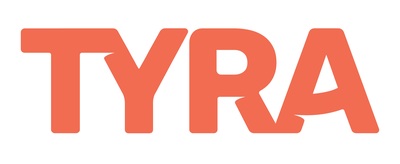Tyra Biosciences Doses First Patient with TYRA-200 and Provides Positive Updates on TYRA-300
- Initiated SURF201 Phase 1 Study; dosed first patient with TYRA-200-
- Cleared multiple dose cohorts in SURF301 and continues to dose escalate with TYRA-300-
- Received FDA feedback on TYRA-300 Phase 2 ACH study: IND submission planned for 2H 2024-
"As we approach the end of 2023, I believe TYRA is in our strongest position to date. We now have multiple clinical-stage programs with TYRA-300 and TYRA-200, and we believe that the emerging profile from SURF301 supports our objective to deliver a best-in-class agent with TYRA-300 to improve outcomes in children with achondroplasia and patients with cancer," said Todd Harris, CEO of TYRA. "In 2024, we are excited to build on our recent progress and continue to advance our pipeline toward milestones that we believe will drive significant value for patients and shareholders."
TYRA-200
- TYRA initiated the SURF201 study and has dosed the first patient with TYRA-200, an FGFR1/2/3 inhibitor with potency against activating FGFR2 gene alterations and resistance mutations. The SURF201 study is currently enrolling and dosing adults with unresectable locally advanced/metastatic intrahepatic cholangiocarcinoma and other advanced solid tumors with activating FGFR2 gene alterations. The Phase 1 clinical study of TYRA-200, SURF201 (Study in PrevioUsly treated and Resistant FGFR2+ Cholangiocarcinoma and Other Advanced Solid Tumors) (NCT06160752), is a multi-center, open label study designed to evaluate the safety, tolerability, and pharmacokinetics (PK) of TYRA-200 and determine the optimal and maximum tolerated doses (MTD), as well as evaluate the preliminary antitumor activity of TYRA-200.
TYRA-300
- SURF301 Study. The SURF301 Phase 1/2 study for oncology (Study in Untreated and Resistant FGFR3+ Advanced Solid Tumors) (NCT05544552) continues to advance. The study is a multi-center, open label study designed to determine the optimal and maximum tolerated doses (MTD) and the recommended Phase 2 dose of TYRA-300, as well as to evaluate the preliminary antitumor activity of TYRA-300. The Phase 1 portion of SURF301 will provide data to inform multiple doses and schedules of TYRA-300 in future studies in metastatic urothelial carcinoma (mUC), non-muscle invasive bladder cancer (NMIBC) and achondroplasia. The SURF301 Phase 1 Part A portion continues to dose escalate and has cleared multiple dose cohorts that are above the anticipated dose(s) planned for use in the Phase 2 pediatric achondroplasia study. Current expansion cohorts in Part B are at dose level(s) anticipated to be evaluated in oncology. TYRA expects to submit initial results from its SURF301 Phase 1 portion for presentation at a scientific congress in 2024.
- Planned Phase 2 Achondroplasia (ACH) Study. TYRA is planning to initiate a randomized Phase 2 clinical trial with multiple dose cohorts of TYRA-300 for children with achondroplasia. The primary objective of this study will be to assess safety and tolerability in children with achondroplasia and determine the dose(s) for further development. Secondary objectives will include evaluating change in growth velocity, growth proportionality and pharmacokinetics, as well as an assessment of quality of life and evaluation of biomarkers indicating dose-response relationships to TYRA-300. TYRA's expectation is that the study will initially evaluate treatment naïve children ages 5-12 to determine optimal dose ranges and will also include a separate analysis of children ages 5-12 with achondroplasia who have not responded to a prior growth accelerating therapy. We also expect to conduct studies in younger children in additional cohorts as data on safety, pharmacokinetics, and dose become available. TYRA plans to submit an Investigational New Drug (IND) application to the US FDA in the second half of 2024 for the initiation of the Phase 2 study.
About TYRA-300
TYRA-300 is the Company's lead precision medicine program stemming from its in-house SNÅP platform. TYRA-300 is an investigational, oral, FGFR3-selective inhibitor currently in development for the treatment of cancer and skeletal dysplasias, including achondroplasia. In oncology, TYRA-300 is being evaluated in a multi-center, open label Phase 1/2 clinical study, SURF301 (Study in Untreated and Resistant FGFR3+ Advanced Solid Tumors). SURF301 (NCT05544552) was designed to determine the optimal and MTD and the recommended Phase 2 dose (RP2D) of TYRA-300, as well as to evaluate the preliminary antitumor activity of TYRA-300. SURF301 is currently enrolling adults with advanced urothelial carcinoma and other solid tumors with FGFR3 gene alterations. In skeletal dysplasias, TYRA-300 has demonstrated positive preclinical results, and the Company expects to submit an IND in the second half of 2024 for the initiation of a Phase 2 clinical study in pediatric achondroplasia. In July 2023, TYRA-300 was granted Orphan Drug Designation for the treatment of achondroplasia from the FDA.
About TYRA-200
TYRA-200 is an investigational, oral, FGFR1/2/3 inhibitor with potency against activating FGFR2 gene alterations and resistance mutations currently in development for the treatment of cancer. TYRA-200 is being evaluated in a multi-center, open label Phase 1 clinical study, SURF201 (Study in PrevioUsly treated and Resistant FGFR2+ Cholangiocarcinoma and Other Advanced Solid Tumors). SURF201 (NCT06160752) was designed to determine the optimal and MTD and the RP2D of TYRA-200, as well as to evaluate the preliminary antitumor activity of TYRA-200. SURF201 is currently enrolling adults with advanced/metastatic intrahepatic cholangiocarcinoma and other advanced solid tumors with activating alterations in FGFR2.
About Tyra Biosciences
Tyra Biosciences, Inc. (Nasdaq: TYRA) is a clinical-stage biotechnology company focused on developing next-generation precision medicines that target large opportunities in FGFR biology. The Company's in-house precision medicine platform, SNÅP, enables rapid and precise drug design through iterative molecular SNÅPshots that help predict genetic alterations most likely to cause acquired resistance to existing therapies. TYRA's initial focus is on applying its accelerated small molecule drug discovery engine to develop therapies in targeted oncology and genetically defined conditions. TYRA is based in
For more information about our science, pipeline and people, please visit www.tyra.bio and engage with us on LinkedIn.
Forward-Looking Statements
TYRA cautions you that statements contained in this press release regarding matters that are not historical facts are forward-looking statements. The forward-looking statements are based on our current beliefs and expectations and include, but are not limited to: the potential to develop next-generation precision medicines and a best-in-class agent and the potential safety and therapeutic benefits of TYRA-300, TYRA-200 and other product candidates; the ability to drive significant value for patients and shareholders; the expected timing, design (including dosing levels) and phase of clinical development of TYRA-300 and TYRA-200, including timing of a submission of an IND for TYRA-300 in pediatric achondroplasia and submission of initial results from the SURF301 Phase 1 portion of the study to a scientific congress; and the potential for SNÅP to develop therapies in targeted oncology and genetically defined conditions. Actual results may differ from those set forth in this press release due to the risks and uncertainties inherent in our business, including, without limitation: we are early in our development efforts, have only recently begun testing TYRA-300 and TYRA-200 for oncology in clinical trials and the approach we are taking to discover and develop drugs based on our SNÅP platform is novel and unproven and it may never lead to product candidates that are successful in clinical development or approved products of commercial value; potential delays in the commencement, enrollment, and completion of preclinical studies and clinical trials; interim results of a clinical trial do not predict final results and clinical outcomes may materially change as patient enrollment continues, following more comprehensive reviews of the data, and as more patient data become available; results from preclinical studies or early clinical trials not necessarily being predictive of future results; our dependence on third parties in connection with manufacturing, research and preclinical testing; acceptance by the FDA of INDs or of similar regulatory submissions by comparable foreign regulatory authorities for the conduct of clinical trials of TYRA-300 in pediatric achondroplasia; unexpected adverse side effects or inadequate efficacy of our product candidates that may limit their development, regulatory approval, and/or commercialization; the potential for our programs and prospects to be negatively impacted by developments relating to our competitors, including the results of studies or regulatory determinations relating to our competitors; regulatory developments in
Contact:
Amy Conrad
aconrad@tyra.bio
![]() View original content to download multimedia:https://www.prnewswire.com/news-releases/tyra-biosciences-doses-first-patient-with-tyra-200-and-provides-positive-updates-on-tyra-300-302021502.html
View original content to download multimedia:https://www.prnewswire.com/news-releases/tyra-biosciences-doses-first-patient-with-tyra-200-and-provides-positive-updates-on-tyra-300-302021502.html
SOURCE Tyra Biosciences








